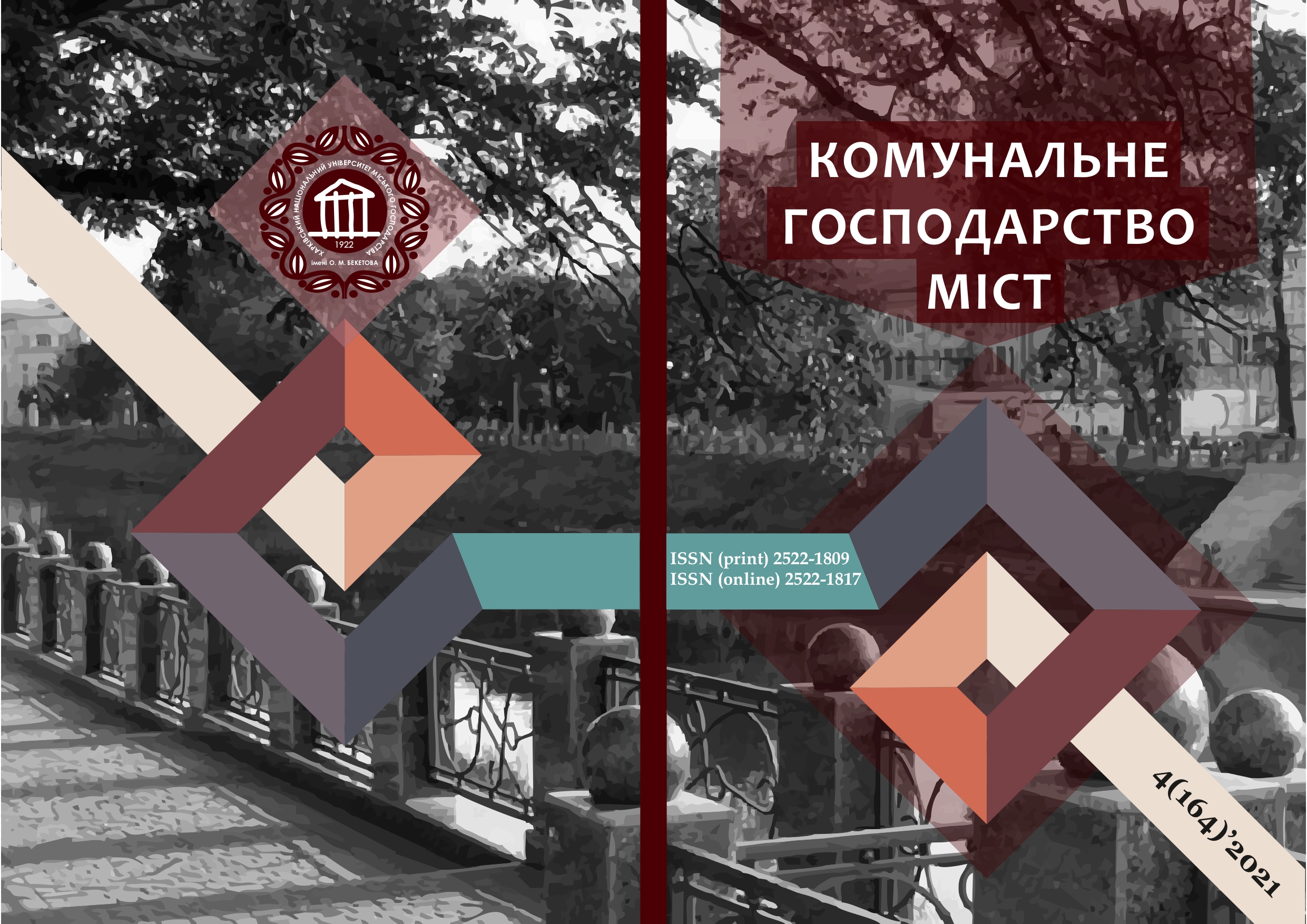EFFICIENCY EVALUATION OF THE TRANSPORT OPERATIONS OF SHIPMENT DELIVERY, INCLUDING THE EXTERNAL ENVIRONMENT IMPACT
Array
Keywords:
environment, external costs, air pollution, transport process, impact.Abstract
The article considered the issue of the effectiveness of the organization of the transport process for the delivery of packaged unit cargo, considering the impact on the external environment. It has been established that transport is one of the most important elements of the urban economy. But on the other hand, and one of the main environmental pollutants. The deterioration of transport problems in cities is associated, first of all, with an increase in the level of motorization and a significant increase in on-line commerce and delivery of goods under quarantine conditions. In such conditions, there is a high concentration of pollutants (NOx, CO, CH, etc.), a decrease in the speed of movement of vehicles, an increase in travel time along the main highways of the city. Many countries have begun to take this important factor into account when making decisions. Today, there are tariffs that are imposed on vehicle owners. The value in monetary terms depends on the type of fuel used, the carrying capacity of vehicles, etc. These tariffs are approved in European countries. Also, the impact of transport on the external environment can be calculated as costs in monetary terms. The modern paradigm of sustainable development of transport systems indicates not only the feasibility of minimizing the costs of organizing the transport process, but also the need to reduce the impact of transport on the environment. The total costs (direct and indirect costs) for transportation are insufficiently estimated in the modern conditions of the organization of the transport process. This fact should be taken into account by the participants in the supply chains. It should be noted that when calculating the cost of transportation of unitized cargo, only the cost parameter is considered. We cannot ignore the fact that transport affects the environment, infrastructure, etc. Therefore, when calculating the total cost of transportation of goods, it is necessary to add “external” costs to the logistics costs. The so-called environmental costs, which contain indicators such as the amount of emissions of harmful substances, an assessment of the impact on infrastructure, and others.
References
2. Taler, R. (2012). Implementing urban traffic control programs on a national scale: Good governance through the Austrian program klima:aktiv mobil. Sustainable Development of Urban Transport Systems: Challenges and Opportunities. [in Russian]
3. Lynnyk, І., Vakulenko, K., Shille, N., Katasonova, N. (2020). State of atmospheric air in Kharkiv and Kharkiv Region. Municipal economy of cities, 6(159), 29–35. [in Ukrainian] DOI: https://doi.org/10.33042/2522-1809-2020-6-159-29-35
4. Beketov, V., Yevtukhova, G., Lomakina, O. (2016). Analysis and assessment of the air pollution level of Kharkiv. Man and environment. Issues of neoecology, 3–4(26), 97–103. [in Ukrainian]
5. Chornopyska, N.V. (2008). Methodical approaches to evaluating the logistics activities of the enterprise. Bulletin of Lviv Polytechnic National University, 623, 265–271.
6. Nerush Yu.M. (1990). Supply and transport: (Effective interaction). Economic, Moscow. [in Russian]
7. Bloshkіna D.A. (2019). Routing of cargo transportation in transport systems. Proceedings of XIII conf. Science - the first steps. Mariupol, 22–26 Apr., 2019. [in Ukrainian]
8. Savin, V.I. (2004). Transportation of goods by road transport. Reference manual 2nd ed. Publishing house "Business and Service", Moscow. [in Russian]
9. Vorkut, A.І. (1986). Freight road transport. Vishcha shkola Golovnoe izdatel`stvo, Kyiv. [in Russian]
10. Banister, D. (2008). The sustainable mobility paradigm. Transport policy, 15(2), 73–80.
11. Korzhenevych, A., Dehnen, N., Bröcker, J., etc. (2014). Update of the Handbook on External Costs of Transport, Final Report. European Commission DG Mobility and Transport.
12. Shiftan, Y., Kaplan, S., Hakkert, S., (2003). Scenario building as a tool for planning a sustainable transportation system. Transportation Research Part D: Transport and Environment, 8(5), 323–342.
13. Cherkesov, A.G. (2003). Economic theory. Mathematical models. Tutorial. Izdatel`stvo SPbGPU. [in Russian]
14. Nefyodov, V., Pavlenko, O. (2021). Modeling the lot cargoes transportation system in cities. Municipal economy of cities, 1(161), 187–190. DOI: https://doi.org/10.33042/2522-1809-2021-1-161-187-190
Downloads
Published
How to Cite
Issue
Section
License
The authors who publish in this collection agree with the following terms:
• The authors reserve the right to authorship of their work and give the magazine the right to first publish this work under the terms of license CC BY-NC-ND 4.0 (with the Designation of Authorship - Non-Commercial - Without Derivatives 4.0 International), which allows others to freely distribute the published work with a mandatory reference to the authors of the original work and the first publication of the work in this magazine.
• Authors have the right to make independent extra-exclusive work agreements in the form in which they were published by this magazine (for example, posting work in an electronic repository of an institution or publishing as part of a monograph), provided that the link to the first publication of the work in this journal is maintained. .
• Journal policy allows and encourages the publication of manuscripts on the Internet (for example, in institutions' repositories or on personal websites), both before the publication of this manuscript and during its editorial work, as it contributes to the emergence of productive scientific discussion and positively affects the efficiency and dynamics of the citation of the published work (see The Effect of Open Access).

